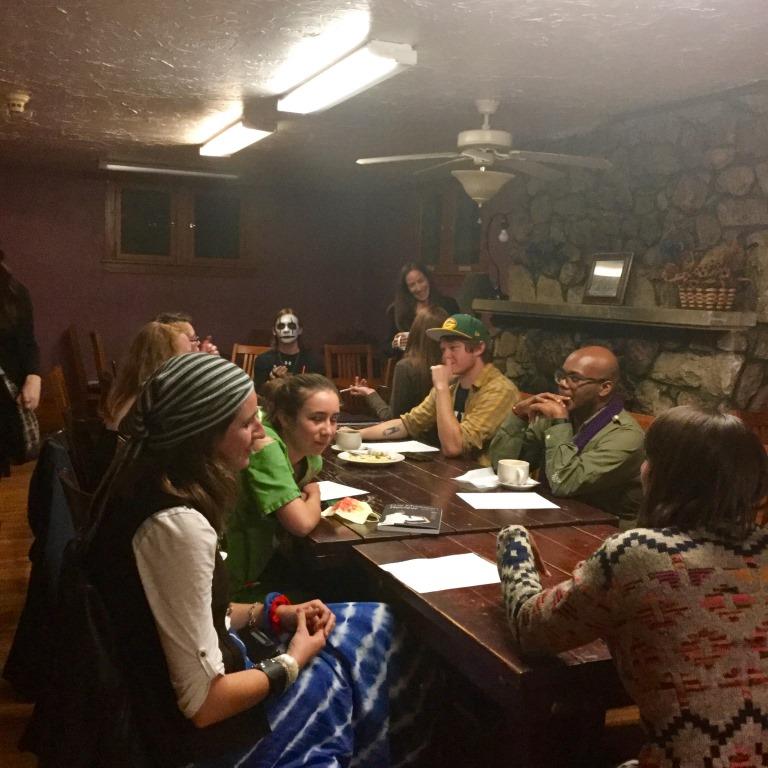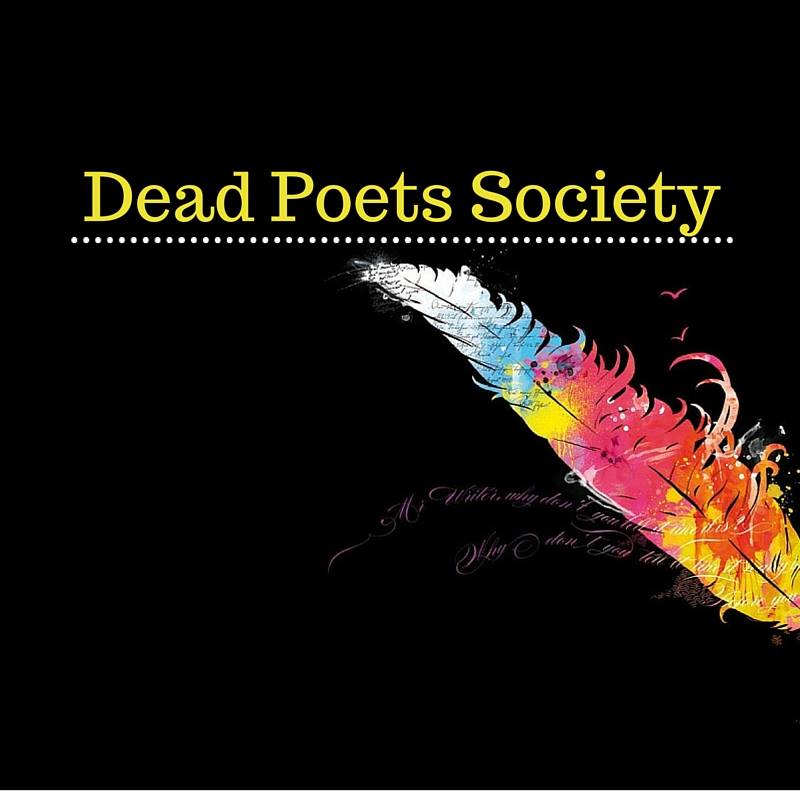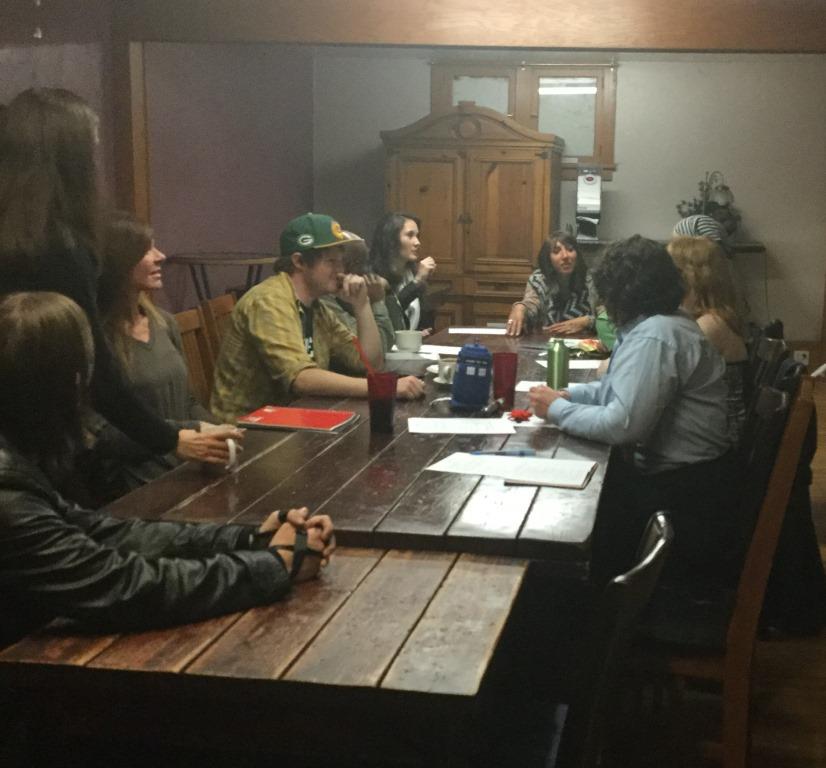~from English Department Communications Intern Ashley Alfirevic
“We were going to call it the Bread & Cheese Club, but that seemed too obscure,” says Kelsey Easton of the Dead Poets Society. The beloved Robin Williams/John Keating wasn’t the only one who had a rag-tag gang of poetry lovers who gathered together for their readings. Washington Irving of “Sleepy Hollow” fame had a similar group dubbed the Bread & Cheese club, hence the near name inspiration. Considering the Wild Boar specializes in neither bread nor cheese, I personally appreciate the more accurate name choice.
The Dead Poets Society meets on bi-weekly Fridays in the basement of the Wild Boar from 7-9 pm. The first hour is a creative writing workshop, and then from 8-9 pm, the members read their own poems or some of their favorite poetry. Kelsey said she organized the club out of a bit of an organic gathering. “I first started Dead Poet’s Society because I would go with a few of my friends to sit around and read poems. We didn’t really have anything with interactive poetry in the English Department, so I thought it would be fun to start this up.”
Originally, the assembled poets came together to read their favorite pieces aloud. When Krystal Tubbs joined Kelsey in club leadership, the tag team started expanding what the Dead Poets Society had to offer. “I started coming in spring of 2015. It gave me a way to become comfortable reading my own poetry and other people’s poetry. Initially it was just reading poems and now we do poetry workshop. And, now we’re doing workshops with graduate students and teachers.”
Though the average meeting flows from workshop to readings, I attended one of the new presentational sessions. Meant to give poets some ideas for publishing their work, professor and published nonfiction author Debby Thompson and MFA student and Colorado Review editor Abby Kerstetter came to give resources and advice to budding writers.

Aside from technicalities on websites, fonts, PDF’s, cover letters, and the like, the two both stressed the critical concepts of modern publishing:
Know “what’s going on out there.” If you’re going to submit, it’s critical to have a sense of contemporary poetry and what people are reading. Understand the innovative things people are doing right now so you can become active in the community of writers. Abby said that as an editor, it’s easy to tell when someone isn’t up to date on the literature and they don’t know the tone of modern journals. And, as Debby pointed out, make sure to read the actual journal you’re submitting to so you can understand their way of thinking.
Enjoy the revision process. Pieces you started in class are just that: started. Abby encouraged everyone to relish in the room to grow as a writer and to build a polished body of work. Debby recommended revising your piece each time you get a rejection and be willing to let go of things. Don’t let the love for the piece overwhelm the need for revision and improvement.
Be grateful for the “shoebox” of rejections. Though the era of email has done away with hard-copy rejection letters and shoebox collections of stationary, expect a lot of form rejections, and learn to be okay with it. For every twenty rejections, you might get one acceptance. This makes acceptance letters, or even rejection pluses, a reason to celebrate. A rejection plus, which means there is no room for that individual piece but asks you to submit to the journal again, means an editor cares enough about your work to reach out to you. Debby urged writers to really take these to heart, and Abby realized how much they really mean when she started sending them herself as an editor.
Find a community to support your work. Finding a writing group, one that will be critical and helpful, can be a challenge. After Abby completed her undergrad, she said it felt maddening for her poems not to have any readers. Debby said it’s tough to find a good group, but once you do, it’s like finding a good therapist.
The Dead Poets Society provides this type of community for the aspiring poet at CSU. From the little time spent workshopping after the presentation, it felt like a comfortable, kind group focused on encouraging writers to share and improve their work. The warmth, the support, the critical eye were all there. The only thing they were missing was bread and cheese.
Future Dead Poets Society Events:
November 13th – Workshop and Reading
November 27th – Guest Speakers
December 11th – Screening of the film Dead Poets Society; BSB theater; 7-10 p.m.

